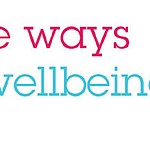You probably already know that proper sleep is critical for maintaining your health and overall wellness. However, few people are aware of the fact that the quality of sleep they enjoy can affect their performance at work, whether in an office or working remotely.
Now, with so many people to work from home, thanks to the pandemic, performance and productivity has come under the spotlight— bringing with it new stressors and challenges. When we’re under stress or facing uncertainties, our sleep tends to suffer. This means that a lack of sleep and its effect on your work may be more noticeable than ever before.
Here’s what you need to know about healthy sleep, productivity, and the link between the two:
Sleep, science, and your health
Every system in your body needs sleep in order to function, at work and in your day-to-day life. Sleep can maintain your good mental and physical health, repairing your cells, boosting your immunity, and regenerating your brain, among other vital processes.
A recent study published in 2018 proved that short duration sleep—that’s 6 hours or less per night—can cause a wide range of physical and mental dysfunctions, including weakened immunity, obesity, and depression. It even puts you at risk for lifestyle diseases such as cardiovascular disease and type II diabetes.
According to the research, oversleeping can lead to the same kinds of issues as not sleeping enough. Sleeping for longer than 9 hours a night puts you at risk of developing the same conditions, including obesity, diabetes and immune dysfunction, as sleep deprivation does.
One of the world’s largest sleep studies to date surveyed more than a million participants over a six-year period to find the ideal amount of sleep for most people. Dr. Daniel Kripke and his team at the University of California San Diego found that most people enjoy the best health and longevity outcomes when sleeping 6-7 hours per night, every night.
It’s easy to see why proper sleep and job performance are closely linked. If you think about how you struggle to function when you’re tired, this becomes obvious. But over time, especially when working remotely and facing many distractions, it’s easy to get accustomed to functioning at less than optimum without even realising it.
In an office setting, being constantly tired is more noticeable, and colleagues may comment on it. But when working from home, you need to be more aware of how your body feels, and whether you’re getting enough sleep.
Take a look at the 5 ways sleep boosts your work performance:
1. A good night’s sleep promotes physical recovery within your body and brain, repairing and strengthening tissues, giving your heart a rest, and lowering your blood pressure and stress levels to promote cardiovascular health.
2. Sleep prompts your body to produce hormones needed to keep your immune system functioning optimally. Improved immune function will keep you productive at work by enabling your body to fight off pathogens.
3. A proper night’s rest gives your mood, mental health, and brain function a boost. Better mental health will ensure you can stay on top of your work responsibilities without suffering from burnout or psychological fatigue.
4. During your nightly shut-eye, your brain creates and maintains the pathways that are crucial for the formation and retention of memories. These processes improve your cognitive and learning abilities, which are all important when it comes to performing well in the workplace.
5. A lack of quality sleep can quickly lead to cognitive impairment, which will slow your ability to think clearly and memorise tasks efficiently. You may become prone to making errors at work if you’re sleep deprived, which can impact your performance and even lead to accidents and injuries in the workplace.
5 benefits of good sleeping habits
The benefits of fostering healthy sleeping habits are myriad and many of them affect your work performance—directly or indirectly.
The benefits of sleeping 7-8 hours per night includes:
- Improved memory. While you sleep, a process called consolidation strengthens your memories and allows you to ‘practice’ skills by creating neural pathways that enable you to retain knowledge in the long term. Knowledge retention is essential to good performance. It will make you more productive, as you won’t have to constantly check that you have the relevant facts or information needed to do your job.
- Increased creativity. According to researchers at Boston College and Harvard University, your brain’s memory consolidation process also reorganises and restructures memories as you sleep. This process seems to strengthen the emotional aspects of your memories, which could improve your creative capabilities. You’ll feel more engaged and see situations and events in a new light. This can enhance your problem-solving skills. You’ll think in a more flexible and adventurous manner too, and this is especially useful in the workplace.
- Reduced inflammation. Inflammation has links to a vast variety of diseases and health conditions, including cardiovascular disease, heart attack, diabetes, autoimmune disease and premature aging. People who get fewer than 6 hours of sleep a night tend to have higher levels of inflammatory proteins in their blood than those who sleep for 7 hours or longer. Thus, the people who sleep for 7-8 hours may enjoy reduced risk and incidence of inflammation-related disease. If you’re feeling ill you’re less likely to be productive, and you may need time off to recover. Your mental health may suffer too as you struggle to cope with your illness.
- Better stamina. According to Stanford University, athletes who slept for at least 10 hours a night for 7 to 8 weeks enjoyed improvements in their average sprint times and experienced more daytime stamina as well. Having stamina in the workplace is an excellent trait, as it keeps you productive for longer without feeling fatigued.
- A healthier weight. The same areas of your brain control your sleep cycles and metabolism. University of Chicago researchers found that dieters who slept properly at night lost more fat than those who did not sleep enough, even though both groups lost similar amounts of weight. The insufficient sleepers were more prone to losing muscle mass than the participants with good sleeping habits. If you’re a healthy weight, you’re likely to feel happier and less sluggish, which in turn will improve your mental health and will allow you to increase your productivity.
Get the shut-eye your body needs
Getting enough sleep is the key to living a truly balanced lifestyle. It’s even more important if you work remotely, as you need to separate work and home life. It’s highly recommended that you reserve your bedroom for sleep, rather than using it for work. And, if you’re going to the office, don’t bring work home with you and do it in bed. Create a clear divide between work and sleep and your mental health and productivity will benefit greatly. Sweet dreams!
Author bio: Kelly Lowe
Photo credit: Aleksandar Cvetanovic on Unsplash





Wow, it was really informative when you mentioned that a proper night's sleep can boost your mental health. I have been feeling very exhausted and depressed lately, and I am not sure what is causing me to be like this. A sleep study could be a good way to find out if this is a potential cause of my depression and exhaustion.
Getting a good night's sleep is essential for anyone who wants to be productive. Unfortunately, many people don't get enough sleep or have poor sleep quality. This can lead to problems with focus, concentration, and energy levels. Wow, it was very informative when you mentioned that getting a good night's sleep can improve your mental health.
Great article! I found the ten reasons listed for why sleep improves mental health and productivity at work very informative and well-researched. I especially appreciated the explanations of how sleep affects cognitive function and emotional regulation. The tips for improving sleep quality were also helpful. Overall, a valuable read for anyone looking to improve their mental health and productivity at work.
https://yourmentalhealthpal.com/huberman-lab-master-your-sleep/